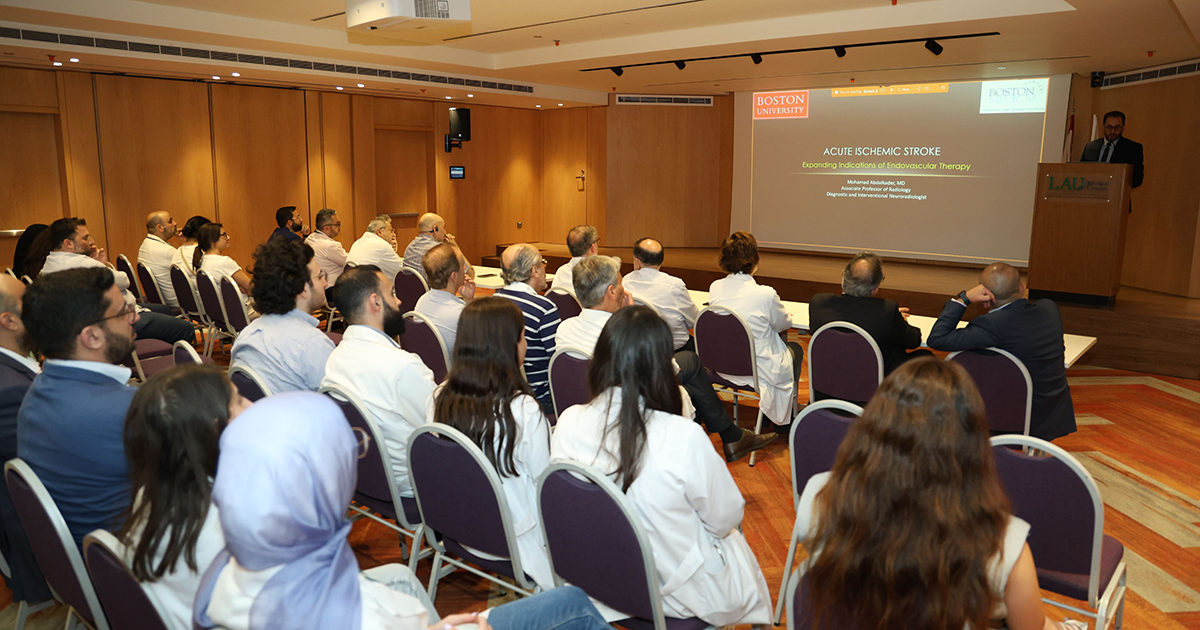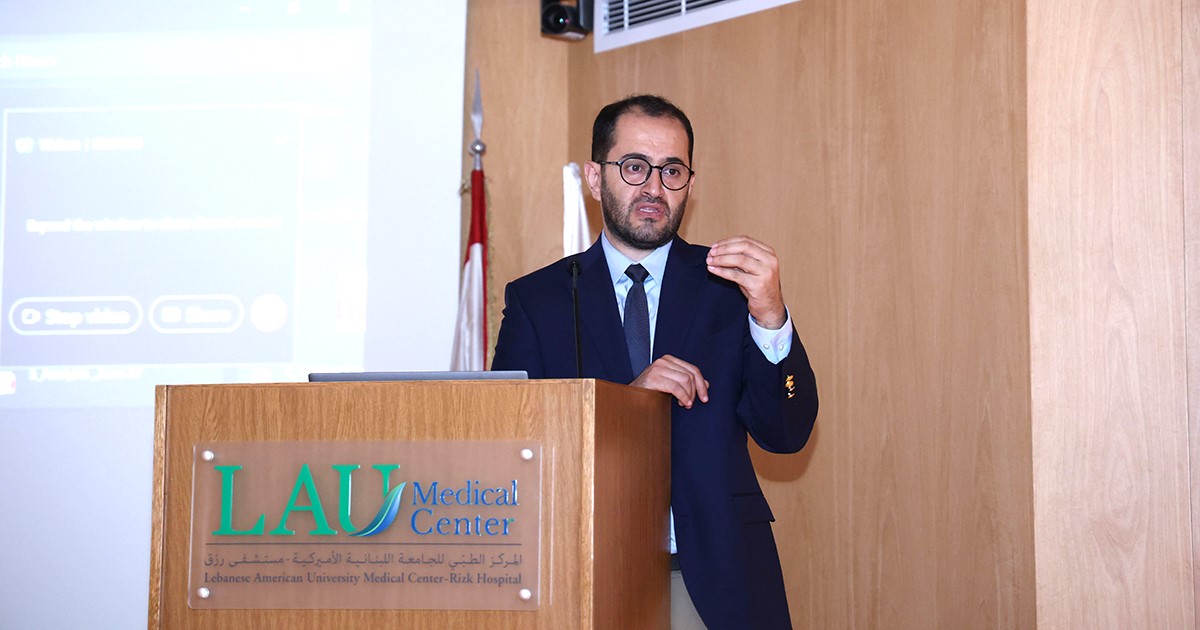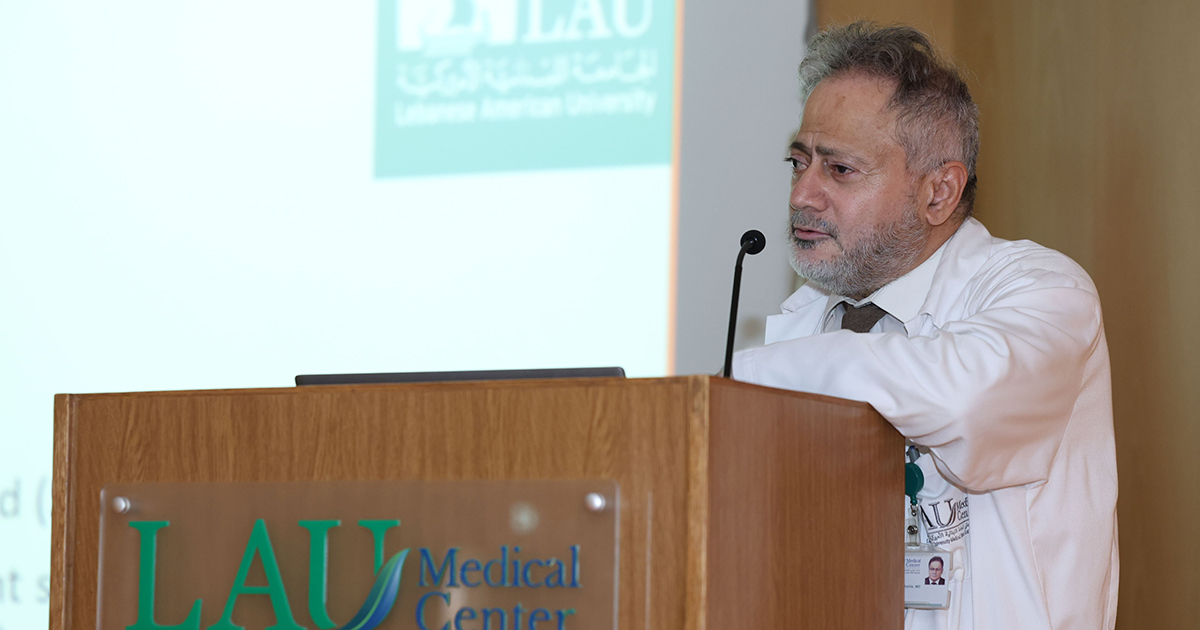Staying Ahead: The Latest Advances in Stroke Management
LAU’s school of medicine brings interdisciplinary professionals together to share their knowledge and expertise while discussing the latest research in stroke interventions.
In 2018, LAU became the first to establish the only Comprehensive Stroke Center in Lebanon at its LAU Medical Center–Rizk Hospital. Since then, maintaining a synergy between the medical center’s state-of-the-art technologies, knowledge and expertise has been crucial to upholding its mission as a leading hub of patient care, education and medical research.
To that end, the LAU Gilbert and Rose-Marie Chagoury School of Medicine organized a conference on July 4 at the LAU Medical Center–RH to review the latest advancements in stroke management, from advanced imaging to endoscopic techniques and procedures.
The conference was led by international speaker Dr. Mohamad AbdalKader, a board-certified diagnostic and interventional neuroradiologist at Boston Medical Center and an associate professor of radiology at the Boston University Chobanian and Avedisian School of Medicine, and LAU’s own Dr. Abdel Rahman Shatila, a clinical assistant professor at the school of medicine.
In his presentation, Dr. AbdalKader discussed the latest clinical trials and the crucial role of robotic and telerobotic surgery in speeding up stroke treatment. He highlighted new standards of care for patients with large vessel occlusion stroke, particularly the recent changes that have extended the treatment time window from six to 24 hours.
He also showcased recent trials that emphasize how advanced imaging-guided thrombectomy—the removal of a blood clot from a blood vessel—can lead to better patient outcomes, including fewer disabilities and a lower risk of death after 90 days, compared to those who receive only medical treatment.
In turn, Dr. Shatila discussed the latest research that supports intravenous thrombolysis efficacy in treating acute ischemic stroke within six hours from symptom onset. Intravenous thrombolysis is an intervention that dissolves blood clots in the brain to restore blood flow and minimize brain damage when administered promptly after stroke symptoms begin.
The LAU Comprehensive Stroke Center has been fully equipped to treat the most complex stroke cases, which require advanced imaging techniques, intensive care unit facilities and 24/7 on-site availability of experienced interventionalists and medical professionals. In that, it addresses the limitations of primary stroke centers, which offer standard stroke care and fall short when it comes to treating patients with complex stroke types effectively and efficiently.
“Our center is an ecosystem of the latest diagnostic, intervention tools and human expertise,” said Dr. Raghid Kikano, co-organizer of the event and Head of the Division of Interventional Radiology at LAU’s school of medicine.
“In addition to our interdisciplinary team’s expertise, we use the latest technologies, including artificial intelligence, in imaging interpretation, patient assessment and data collection,” added Dr. Kikano. “This keeps us current and allows us to incorporate the latest data into our clinical practice.”
“The rapid evolution of medical knowledge makes these conferences essential,” said Associate Dean for Faculty Affairs and Development Vanda Abi Raad. “They provide a platform for trainees and practitioners to stay abreast of the latest breakthroughs, ultimately boosting the quality of healthcare in the country.”
According to the acting Chair of the Department of Neurology at the school and co-organizer of the conference, Dr. Mohamad El Dassouki, as time is of the essence when treating a stroke, the interdisciplinary team at the Comprehensive Stroke Center is always on hand to receive stroke cases, even from periphery hospitals. By collaborating in real-time, be it in person or through messaging applications during admission, diagnosis and treatment, the team works seamlessly to ensure the best patient outcomes.


